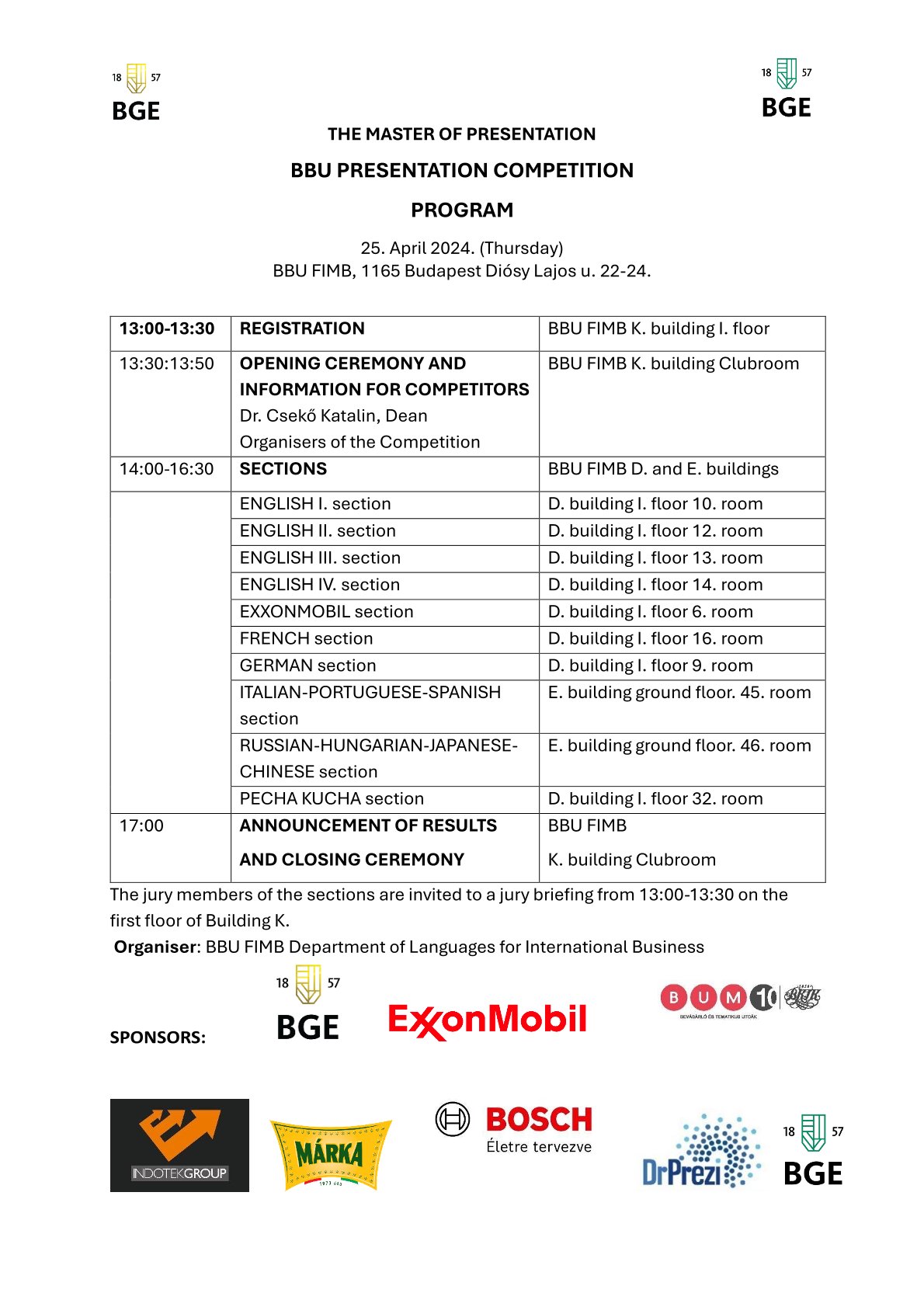The Department of Languages for International Business offers business, diplomacy and other specialized language courses in English, German, French, Italian, Spanish, Portuguese, Japanese, Chinese and Hungarian as foreign language. We have nearly 30 courses designed to meet the expectations of the labor market, the profession, and our students. Working with innovative curricula and methods, we ensure that students acquire professional language skills and numerous other skills highly valued in the labor market; for instance, business soft skills, intercultural communication skills and negotiation techniques. In addition to the mandatory and optional courses included in the curriculum, we also offer fee-based language courses in 15 languages, as well as specialized training programs in foreign languages, such as the Investor Pitch and Persuasion Techniques in Business Presentations. At our Diszpont Centre, we cater for students with language learning challenges. The main research areas of the Department are audio-visual translation, support for autonomous learning skills development, ICT-based language teaching, intercultural communication, contrastive terminology, language teaching-methodological innovation, project-based language teaching and telecollaboration in higher education.
Key partners:
· British Telecom ROC Ltd
· Italian Cultural Institute in Budapest
· Ferrero Hungary Ltd
· Japanese Foundation
· Gas Jeans Hungary - Laurentes Ltd
· LKW WALTER Internationale Transportorganisation LLC
· Italian Chamber of Commerce
· Portuguese Camoes Institute
· Prysmian MKM Hungarian Cable Works Ltd
· Confucius Institute University of Szeged
· Vodafone Service Centre Budapest
